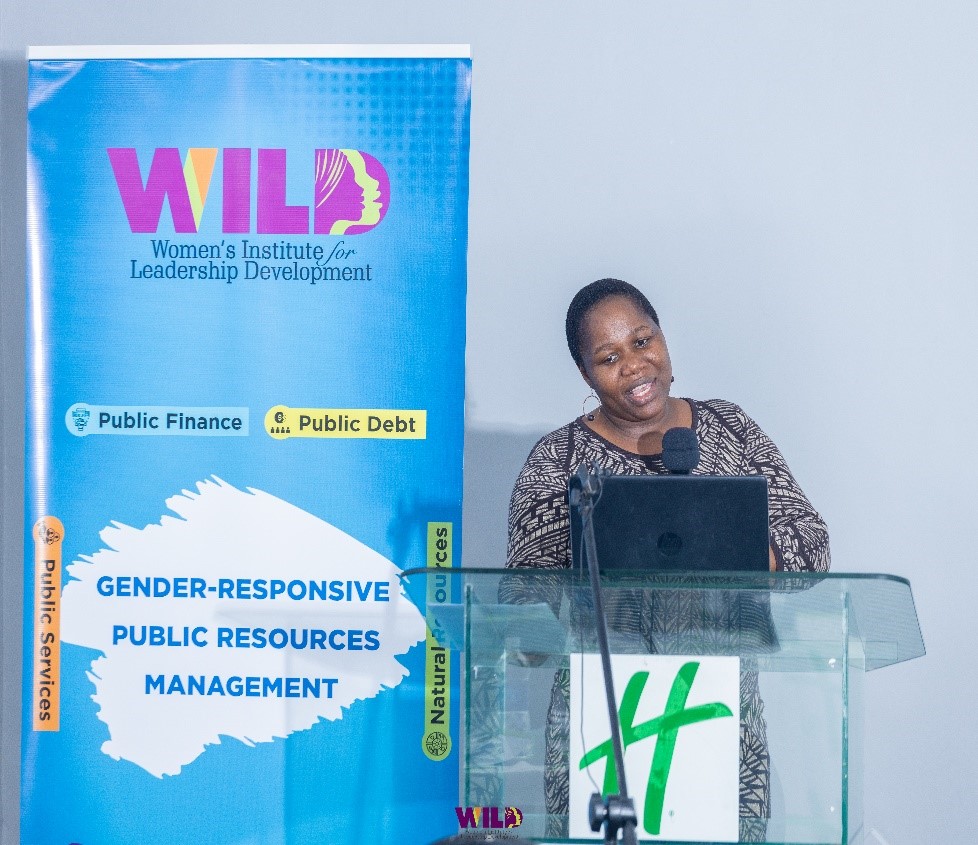Citizen Engagement Leads to Changes in Zimbabwe’s 2024 Budget
Loraine Phiri

On November 30, 2023, the Minister of Finance and Economic Development, Prof Mthuli Ncube unveiled the 2024 national budget strategy that projects revenue collections to be 30.7 trillion against expenditures of 33.1 trillion resulting in a budget deficit of 2.3 trillion. While the 2024 budget, themed “consolidating economic transformation,” sought to increase domestic resource mobilization and attract investment, it sparked citizen outrage. Key concerns being on the introduction of new taxes, tightening of trade regulations, and the increase of passport prices and toll gate fees. The discontent among citizens stemmed from the financial strain imposed on their already burdened economic situation.
In response to the public outcry, the Women’s Institute for Leadership Development (WILD), led a state CSO engagement on Gender Responsive Public Resource Management. The aim was to provide multi-stakeholders a platform to analyse, engage, and call for a gender-responsive 2024 national budget that fosters inclusive and sustainable economic and social development. The engagement held on 11 December at Holiday Inn was attended by representatives from women-led community-based organizations (CBOs), Civil Society Organisations (CSOs), media, academia and local authority, residents’ leaders, and people living with disabilities (PWDSs) ensuring diverse perspectives and a comprehensive understanding of the budget implications.
Shining a light on gender, Professor Favourate Mpofu’s analysis of the national budget exposed potential gender gaps in the budget, sparking lively crucial conversations about tax implications for different groups and the need for equitable resource allocation.
“It is important that the government contextualize tax to the economic realities of Zimbabweans. The Tax Policy requires a Balancing Act that ensures constant monitoring and review to create a tax system that is fair, efficient, and sustainable, and meets the needs of all citizens,” said Prof Mpofu.
Senior Lecturer in Development Studies at Zimbabwe Open University (ZOU), Mr Tobias Guzura highlighted the budget’s shortcomings in meeting regional education standards, particularly its impact on marginalized communities and women’s access to education.
“The allocation falls short of Zimbabwe’s regional standards to which it is a signatory. Although Zimbabwe has been recognized for its education sector within Africa. Only 17.75 percent has been allocated instead of an anticipated allocation of 20%, falling short by 2.25 percent. The under-allocation means marginalized communities’ access to education will still be problematic while excluding women and girls from participating in this sector due to the long distances they must travel and disparities in resources affecting their economic capacity, further exacerbating their disadvantageous position within society. There is an urgent need to revive our education sector,” he said.
Cllr Mxolisi Mahlangu focused on the budget’s trickle-down effect on local service delivery, emphasizing the importance of understanding its impact on communities.
Disability inclusion activist, Tsepang Nare challenged proposed wealth and sugar taxes, and passport price increments citing their implications on the economic inclusion of the most vulnerable groups such as cross-border traders by further marginalising them.
“The discussion we are having is very much relevant. The national budget continues to perpetuate inequalities hitting women and people with disabilities (PWDs) the hardest. It is important now more than ever that we push for an equality act because this budget is not pro-poor. Cross-border trading is the lifeline of most women and PWDs. So if these taxes are introduced coupled with high passport fees how are marginalized communities expected to sustain themselves and uplift their communities,” said Nare.
The engagement wasn’t just about identifying problems; it was about solutions. Stakeholders rallied to draft a policy brief outlining their concerns. The engagement was live streamed on the Centre for Innovation and Technology (CITE) Facebook page with over 117K followers serving as a virtual bridge, allowing a wider audience to participate in the national budget discussion and contribute their voices. Social Media buzz erupted on Twitter and Facebook, sparking live debates and further amplifying the message. Policy makers and the Parliament of Zimbabwe were tagged on the conversations. Community Podium and Chronicle covered the event ensuring national visibility. This brought the National Budget concerns to the attention of decision makers and the general public. Civil Society Organizations (CSOs) also joined the conversation, expanding the reach and impact of the advocacy efforts. This collaborative spirit ensured a more unified and powerful voice for people’s needs and aspirations to heard by the policy makers.
These collective efforts yielded positive results. The finalization of the 2024 national budget saw the Ministry of Women Affairs receiving an additional $20 billion boost for gender initiatives and the Youth Ministry $450 billion more. Responding to public outcry, passport fees were reduced from $200 to $150. Additionally, the proposed wealth tax was revised, exempting primary residences and capping individual liability to ensure fairness
